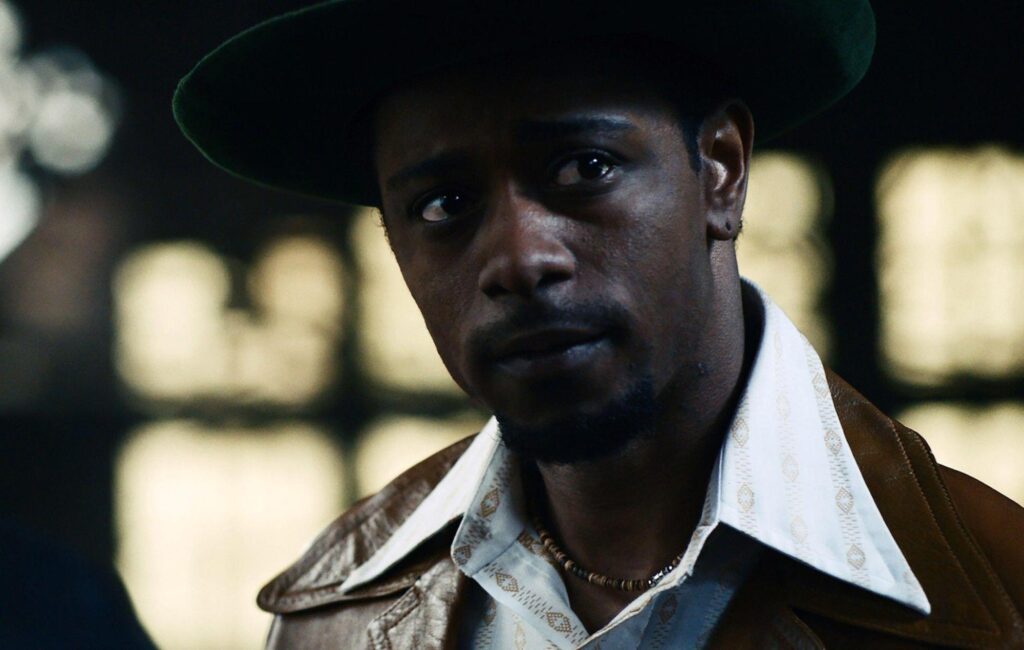
The FBI were too successful at spreading lies about the Black Panthers. When one watches Shaka King’s Judas & The Black Messiah (2021) it’s amazing to think that the entire country wasn’t up in arms over acts of police brutality. The sad truth of it is that circumstances in the United States haven’t really changed at all since Fred Hampton’s lifetime.
Fear and ignorance are the antagonists in Judas & The Black Messiah. We never really get to know William O’Neal (Lakeith Stanfield) beyond the immediate sense. O’Neal exists only in the moment, a reactionary force controlled by fear wielded by FBI agent Roy Mitchell (Jesse Plemons). Even then Shaka King goes to some lengths to establish that Mitchell himself is being manipulated by an institution that trades in the power of fear mongering. What O’Neal, Mitchell and law enforcement do, in history as well as in the film, is a travesty. But it’s a travesty whose fundamental cause is a human frailty that exists in us all.
Fred Hampton recognized that about his opposition and Shaka King sees that in all of his characters. Judas & The Black Messiah is one of the most compassionate films I have ever seen that’s dealt with so much disturbing content. Hampton (Daniel Kaluuya) and O’Neal are total opposites, one a leader driven by ambition and a will to change while the other is driven by fear and a desperate desire to survive. They are two sides of the same coin, two men who were made by a system that is unbelievably hostile and racist towards them. So as much as a viewer might loath every thing that William O’Neal does it’s almost impossible to hate him as a person.
Shaka King’s feature debut is a tour de force, no one should deny it. King balances social realism with small punctuations of romanticism, creating a portrait of Fred Hampton that mythologizes just as much as it humanizes. In this way Judas & The Black Messiah reminded me of Martin Scorsese’s Goodfellas (1990) and Spike Lee’s Malcolm X (1992). Yet there’s something more expressionistic about King’s framing that suggests that, as a filmmaker, the priority isn’t communicating narrative information but rather articulating character. Judas & The Black Messiah is that rare film that dramatizes a moment in history not because of its spectacle, but because of its poetry. It is a tragedy, to be sure, that possesses all of the beauty of an untold truth.
